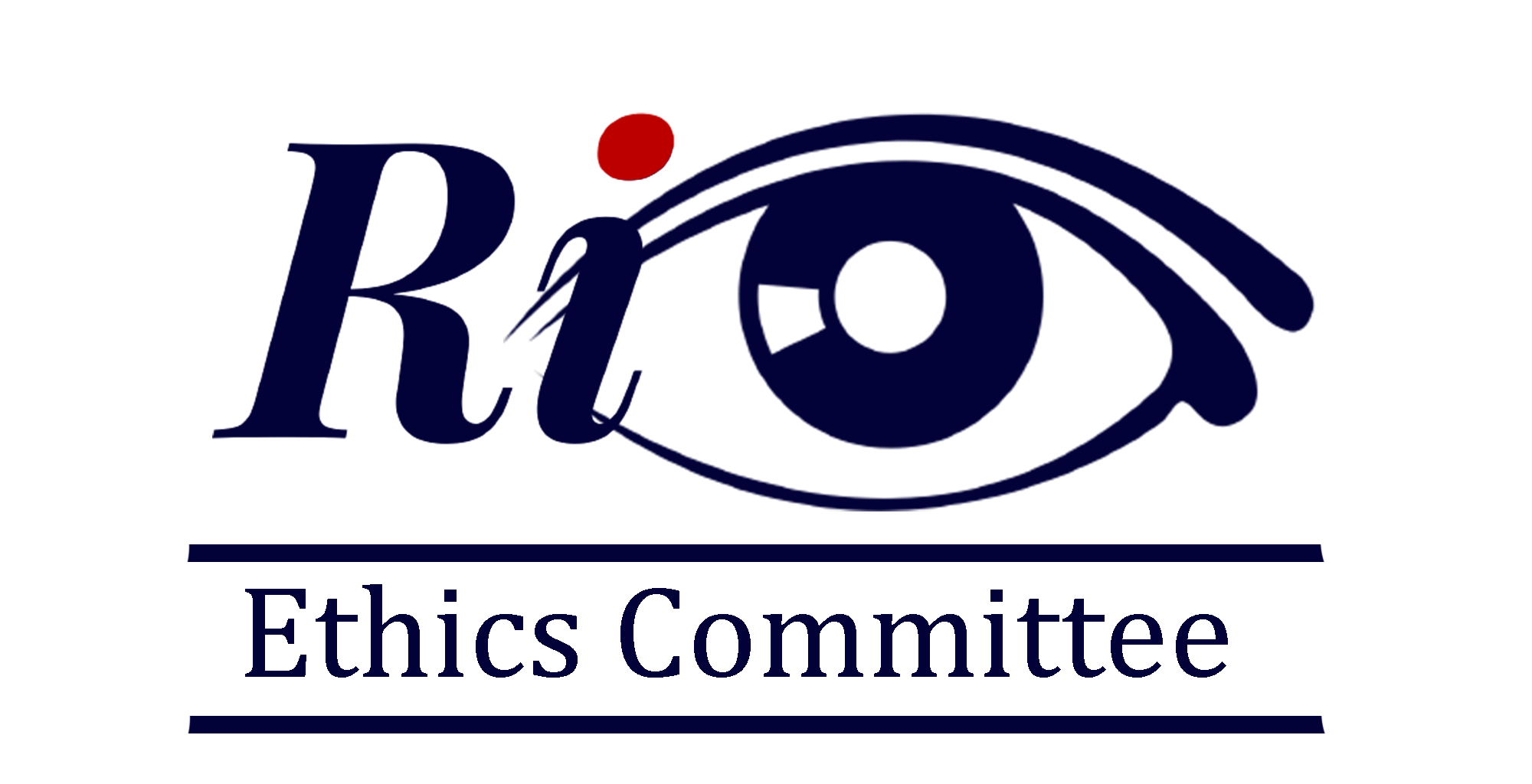Role of Institutional Ethics Committee (IEC)
- The Ethics Committee of RIO, KOLKATA constituted by Principal,RIO, KOLKATA.
- The Institutional Ethics Committee of RIO, KOLKATA will review all types of research proposals involving human participants with-a view to safeguard the dignity, right, safety and wellbeing of all actual and potential research participants before approving the research proposals. The goals of research proposal however important, should not take precedence to the health and wellbeing of potential human participant.
- The IEC of RIO, KOLKATA Hospital will devoted to ascertain whether all the cardinal principles of research ethics viz., Autonomy, Beneficence, non-malfeasance, Respect for free and informed consent, respect for human dignity, respect for vulnerable person, respect for Privacy and Confidentiality and justice are taken care of in planning, conducting, and reporting of the proposed research. For this purpose, committee will look into the aspects of protocol review, selection of participants, voluntary partition, informed consent procedure, risk and benefits ratio, distribution of burden and benefits, maintenance of privacy & confidentiality and provision for appropriate compensations.
- Committee will review the proposals before the commencement of the study as well as review periodically until the completion of the study through appropriate well documented procedures. Such a review may be based on the periodic study progress reports furnished by investigator and/or monitoring and internal audit reports furnished by the Sponsor and/or by visiting the study sites.
- The mandate of the IEC shall be to review all research projects conducted at the Institution involving human beings directly or indirectly' irrespective of research project is funded or non-funded' and if funded irrespective of funding agency.
- IEC of RIO, KOLKATA Hospital will provide advice to the researcher in all aspects of the welfare and safety of the research participants after ensuring the scientific trustworthiness of the research proposals.
- If the IEC of RIO, KOLKATA revokes the approval accorded to the study protocol, reason for the same will be recorded and communicated to the Investigator and Licensing authority.
- In case of any SAE or death occurring to the research participant Committee shall forward its opinion on SAE or death after due analysis and opinion on the financial compensation, if any to paid by the Sponsor or its representative who so ever obtained the permission from the licensing authority under Appendix XII (gazette notification 30th January 2013 and Clinical Trial Rules March-2019) with a copy of report to the licensing authority within prescribed timelines.
- The IEC is guided in its reflection' advice’ operation and decision by the ethical principles expressed in ICMR, ICH, GCP, Drug and Cosmetics Rules and Declaration of Helsinki.
- The IEC will perform its responsibilities by prior registration with the Drug Controller General (India) as per the amended Drug & Cosmetics Act 1945, by Ministry of Health & Family Welfare, Govt. of India.
- The IEC will review both the amount and method of payment to the subject to defray expenses and compensation for any loss of income of the participant, and to ensure that this does not amount to coercion, undue influence, misrepresentation or fraud on the trial subjects. Payment to the subjects will be on a prorated basis, and not wholly contingent on the completion of the trial by the subjects.
- The EC will response to the CDSCO within 90 days of receipt of any suspension or cancellation of registration intimation.
- The EC will maintain the list of audit and inspection it has hosted. Also, IEC will maintain strict confidentiality of all the documents relating to protocol and its proceedings.
Ultimate role OF THE IEC
Before the study begins
- Receipt of application for approval
- Review of proposal
- Decision making process (meeting)
- Issuance of approval
- Record keeping
- Review of amendments ( e.g. Protocol, ICD)
- Review of Serious Adverse Events
- Monitoring protocol deviations
- Monitoring progress (study status)
- Record keeping
- Reviewing study report
- Publication related issues
- Any compensation claims
- Record keeping
- To provide competent review of all ethical aspects of the project/study
- Undertake review free from bias and influence
- Should review the qualifications of the investigator for the proposed trial
- Provide advice to the researchers on all aspects of welfare and safety of research participants
- To protect dignity, rights and well-being of the potential research participants
- To report all SAE (Serious adverse event) to licensing authority
- To provide an opinion on the compensation to research participants, if any, in case of injury or death during clinical trials
- Investigators must submit their updated CV and MRC
- The IRB/IEC should conduct continuing review of each ongoing trial at intervals appropriate to the degree of risk to human participants, but at least once a year.
.png)
